French pension reform heads for final vote amid massive strikes
A final version of the French government's controversial pension reform that since the start of the year has set off massive protests and strikes in France is to be put to a vote in both houses of the French parliament.
A joint commission of Senators and MPs agreed on a final draft of the bill on Wednesday, and both houses are set to vote Thursday on the legislation, which would raise the minimum retirement age from 62 to 64.
The bill is likely to pass in the Senate, but in order for it to pass in the National Assembly, which failed to vote on a first version of the legislation, lawmakers from French President Emmanuel Macron's party depend on support from the opposition conservative Republicans (LR), and some have expressed hesitations.
"In my group, as well as in the ruling party, there are some MPs who do not want to vote for this reform," the top-ranking LR party lawmaker in the Assembly, Olivier Marleix, said on Wednesday.
If MPs fail to pass the legislation, Prime Minister Elisabeth Borne could use powers rooted in article 49.3 of the French constitution to ram the legislation through without a vote.
"We don't want the 49.3," government spokesman Olivier Veran said on Sunday. "We want there to be a positive vote for this bill."
Analysts believe that forcing the reform plan by decree would deprive Borne and Macron of democratic legitimacy. Also Union leaders have said that using 49.3 would lead to a hardening of opposition and would escalate strikes.
Labor unions have vowed to pile pressure on the government by staging protests and strikes. On Tuesday, more than 1.28 million protesters marched across France as rail workers and refinery staff began rolling strikes and trade unions stepped up their campaign to try to stop Macron's pension reform.
About 6,600 tons of rubbish was estimated to have built up in Paris on Tuesday as the city's refuse collectors voted to continue their strike until March 20, attracting rats and dismaying tourists.
The private refuse company Derichebourg, which is tasked with carrying out emergency collections in some of the worst-affected areas, said on Wednesday that it would stop intervening after threats from strikers "to block the entrances and exits to our site."
Although Interior Minister Gerald Darmanin has urged Paris city authorities to order workers back to work on health grounds, Socialist mayor Anne Hidalgo has refused, writing on Wednesday that the protests were "fair."
Elsewhere, workers from the CFE-CGC trade union in the south of France claimed on Wednesday that they had cut the electricity supply to a presidential island retreat in the Mediterranean used by Macron for his summer holidays.
Trains, schools, public services, and ports have been affected by strikes over the last six weeks.
Opinion polls show that two-thirds of the French people oppose the reform and support a protest movement organized by trade unions, who have unified behind their opposition and have warned they will continue their mobilization even if the bill is voted through on Thursday.
The government had initially said that pushing back the retirement age by two years and extending the pay-in period would yield an additional 17.7 billion euros in annual pension contributions, allowing the system to break even by 2027.
The opposition warns the reform will penalize low wage-earners and will force people who started manual jobs at lower ages to work longer.
Mother’s Day: Sareh Javanmardi’s inspiring journey as Paralympic champion and mother
Russia downs over 40 Ukrainian drones as Putin vows 'destruction' on Kiev
VIDEO | Yemen: A bone in Israeli neck
D-8’s role in Iran’s economy after Cairo summit
China slams US as ‘war-addicted’ threat to global security
China ‘firmly opposes’ US military aid to Taiwan
VIDEO | Press TV's News Headlines
President Yoon Suk Yeol to be removed from office


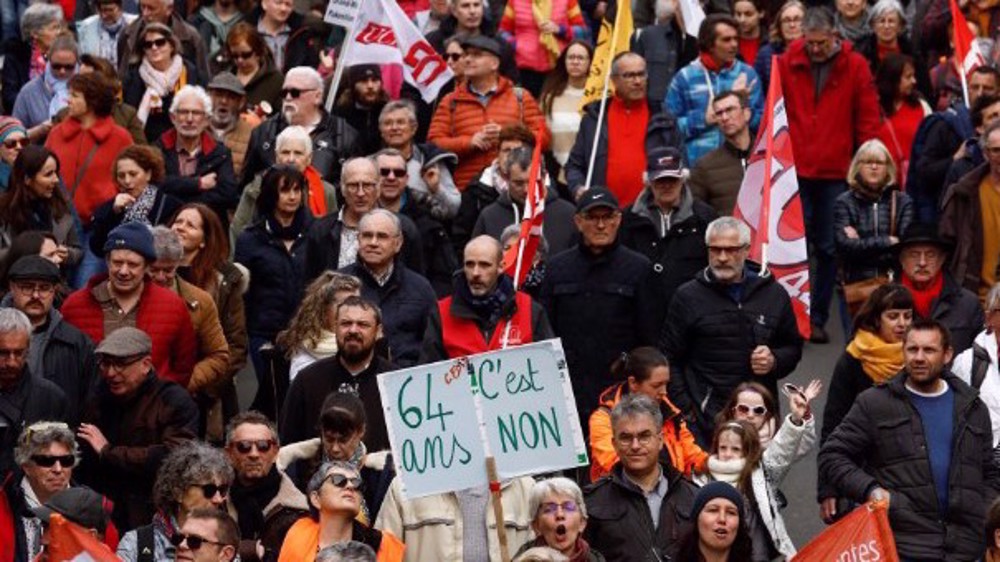
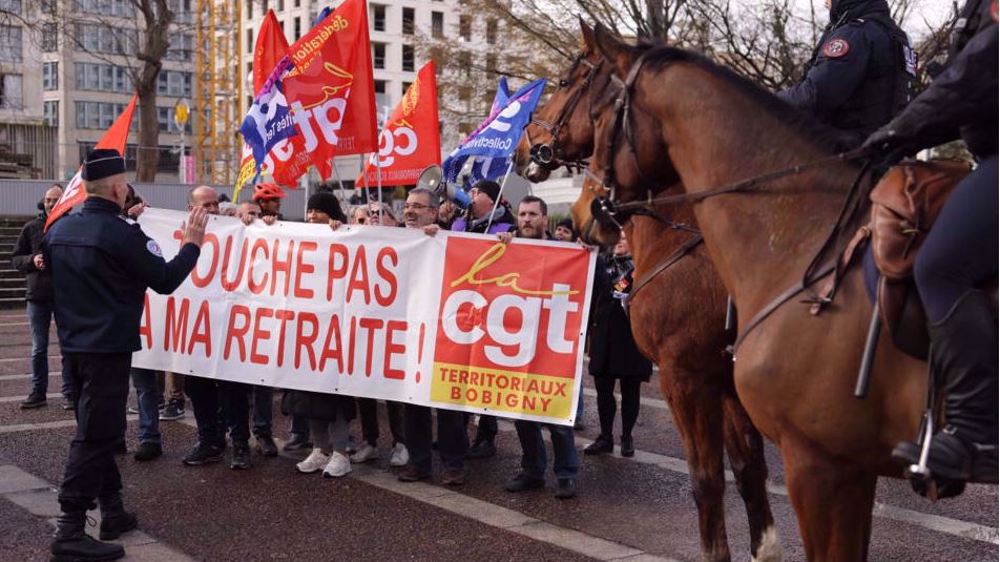
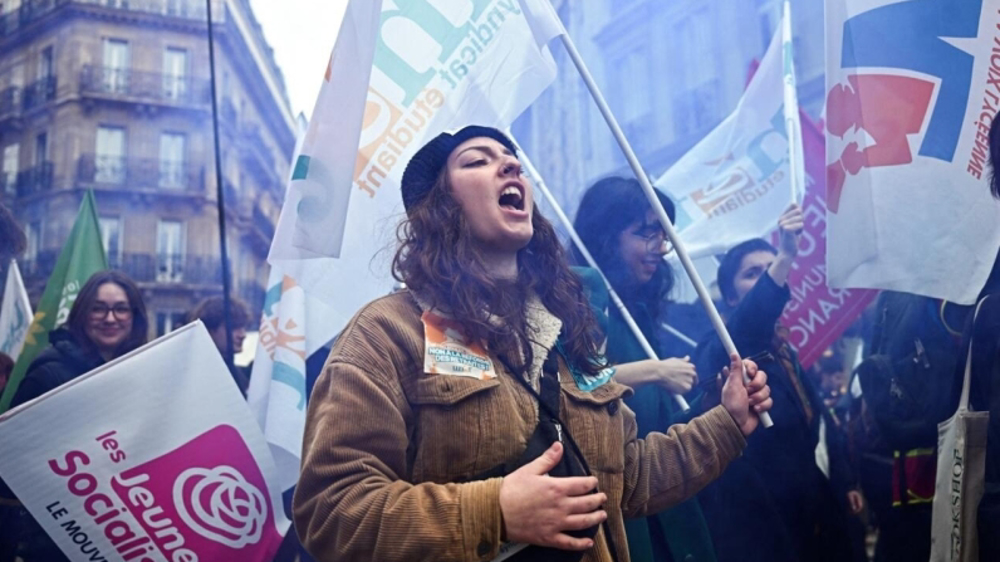







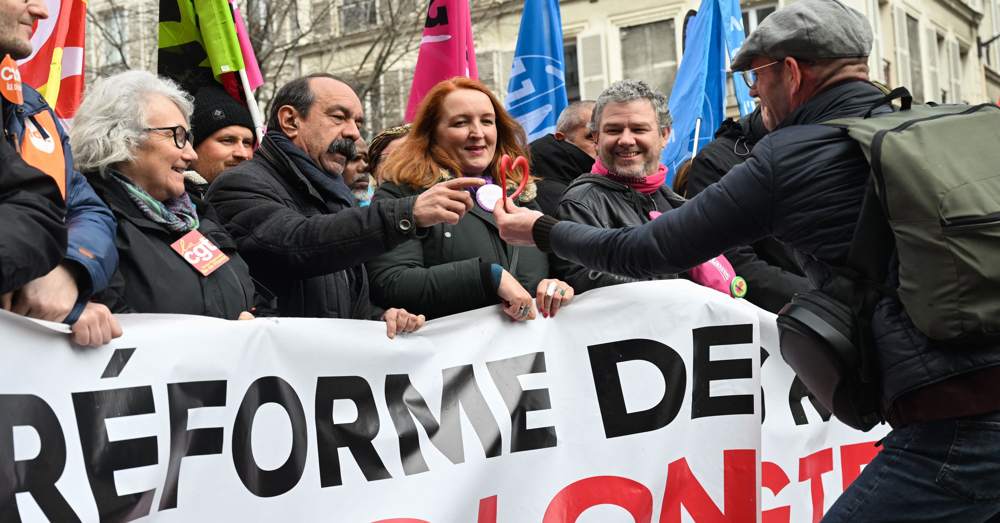

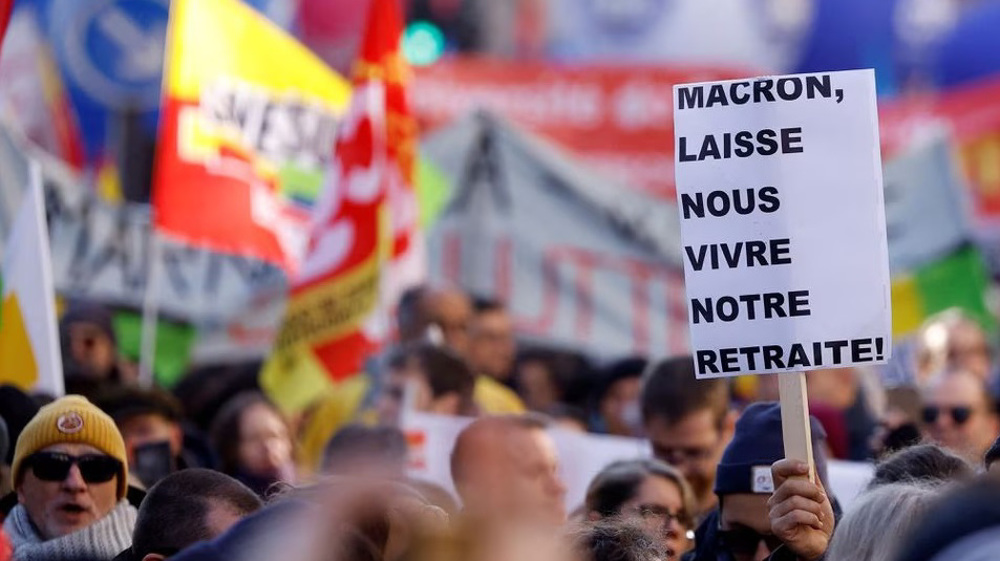
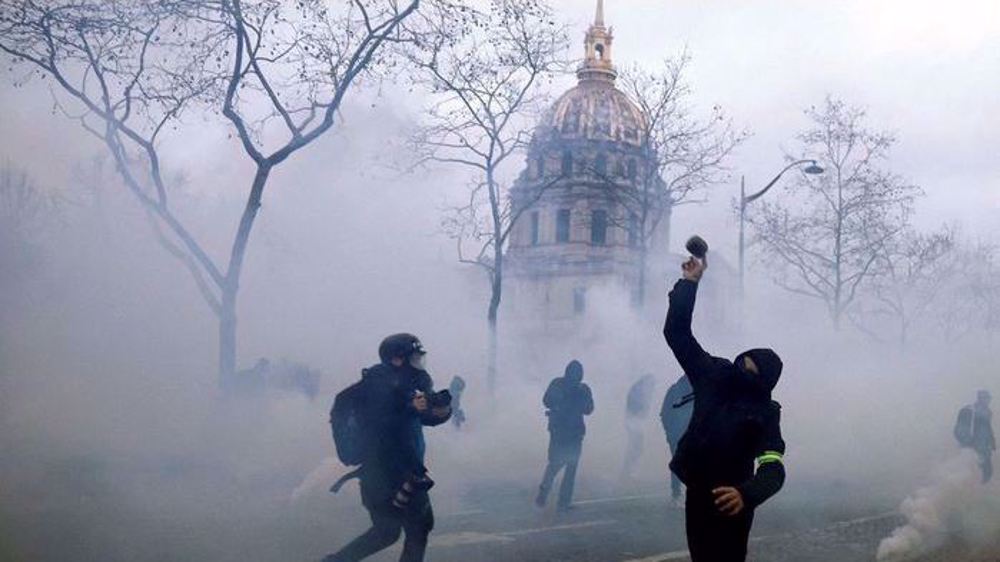

 This makes it easy to access the Press TV website
This makes it easy to access the Press TV website